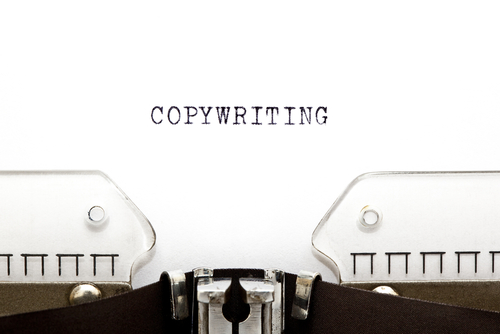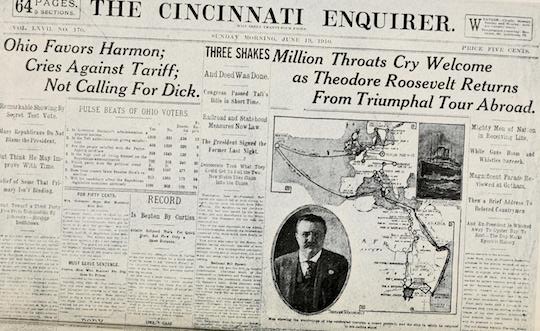In the digital age, perhaps even more so than in the past, words are powerful. They shape how people perceive your brand, influence buying decisions, and drive engagement across every platform, from websites and blogs to emails and social media. This is why copy and content writers are more important than ever. They’re the professionals working behind the scenes to ensure that your message lands exactly as intended – clear, engaging, and on target.

But not all writing is geared to the same outcome, which is why both copywriters and content writers play essential roles in modern marketing.
There’s no doubt that words can make or break a marketing campaign. The right phrasing can elevate your message, build trust, and drive action. But the wrong words, whether rushed, careless, or poorly targeted to your audience, can have the opposite effect. They can confuse, alienate, or even damage your brand.
The Power of Words: The Role of Copy and Content Writers
Words play a significant role in the effectiveness of marketing campaigns. Accurate and intentional phrasing can enhance messaging, support trust-building, and prompt action, while imprecise language may cause confusion or negatively affect brand perception.
In today’s digital environment, characterised by high content volume, precision in communication is increasingly important. Copy and content writers contribute to this process by ensuring messaging is clear, relevant, and targeted appropriately.
Words That Work – and Those That Don’t
If you are a marketer – whether operating from home or in a professional setting – it is essential to consider every avenue through which you engage with your audience. Do you use social media, websites, blogs, emails, advertisements, and brochures? Each of these channels conveys your brand’s voice, values, and messages. If even one aspect is misaligned – perhaps an unclear call to action, a spelling mistake, or a poorly structured argument – it can undermine trust and diminish your overall impact. On a personal level, my biggest turn-off in any campaign or logo is a simple spelling mistake. If you can’t be bothered to check something as basic as that, what other corners are you cutting? It’s hardly the right way to build trust in a brand when the very first impression, whether through a logo, tagline, or campaign, is flawed from the start.
It is a fact that great writing grabs attention – for all the right reasons. Great editing makes sure it keeps that attention, maintains consistency, and aligns perfectly with your goals.
What’s the Difference Between Copywriters and Content Writers?
Whether it’s a clever slogan, a high-converting landing page, or an irresistible email subject line, copywriters and content writers are the professionals working behind the scenes, crafting the words that drive positive results.
The key difference lies in purpose:
- Copywriters write to sell.
- Content writers write to inform, educate, or engage.
Each brings a unique skill set to any brand’s communication strategy across different platforms.
What Does a Copywriter Do?
Copywriters are the salespeople of the writing world. They craft words that prompt people to take immediate action – whether it’s buying a product, signing up for a newsletter, clicking a link, or downloading a resource. Every marketing effort needs someone to drive the product or project toward success.
Put simply, a copywriter is a professional writer who specialises in creating persuasive text, known as copy, to help businesses sell products, promote services, or influence behaviour. Their job is to turn browsers into buyers by using language that resonates, convinces, and converts.
- Copywriters do far more than just write – they create strategies. Every word they choose is carefully crafted to:
- Capture attention
- Spark interest
- Build desire
- Drive action
- Tell a story in a few powerful and well-chosen words
- Make products and services sound irresistible and necessary
- Create consistency across all marketing channels, whether written, visual, or heard
- Turn browsers into buyers
Shape a brand’s voice. In today’s crowded digital landscape, strong copy helps a business cut through the extraneous noise and focus on what truly matters – communicating its message clearly and effectively to the right audience. Good copy avoids unnecessary wordiness and keeps the brand’s voice distinct from the overwhelming noise of competing promotional messages. The ultimate goal? To attract the customer to your brand – above all others.
Copywriters Are Behind Different Types of Copy
Copywriters work across many formats and platforms, including:
- Advertisements and ad campaigns (online and print)
- Product descriptions
- Sales pages and emails
- Email campaigns
- Calls to Action (CTAs)
- Social media ads and captions
- Website copy (e.g., homepages, landing pages)
- Taglines, slogans, and promotional headlines
- Video and radio scripts
No matter the format, their goal is always to persuade, convert, or inspire action.
Copy is typically sharp, concise, and direct. Good copywriting taps into emotion, speaks directly to the audience’s needs, and uses compelling calls to action. It’s the push behind phrases like “Don’t miss out!” or “This offer is exactly what you’re looking for.” When the message feels personal, like it was written just for you, you’re far more likely to act on it, rather than postponing the decision or forgetting it altogether. That sense of urgency and relevance is what drives conversions. That’s the power of strong copy.
In Summary
Both copywriters and content writers play a crucial role in shaping a brand’s voice and success. Whether it’s crafting the perfect headline that compels a click or writing a blog that earns trust and loyalty, the right words can make all the difference. Copywriters drive sales and action – as the salesperson. This is just one side of an effective marketing strategy. We will continue this blog with full disclosure on the role of content writers in the next blog post.

